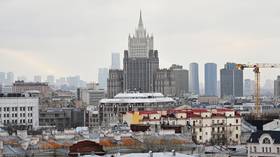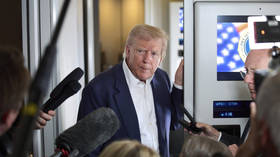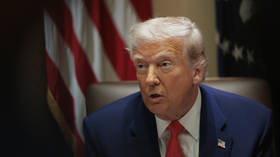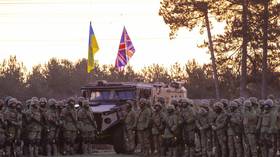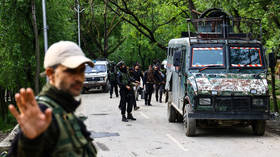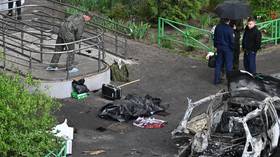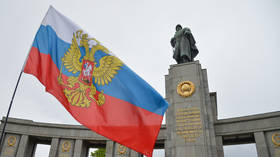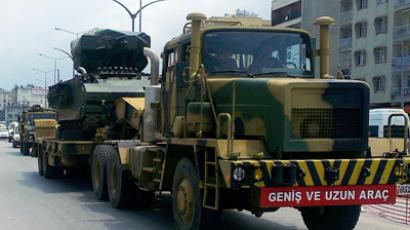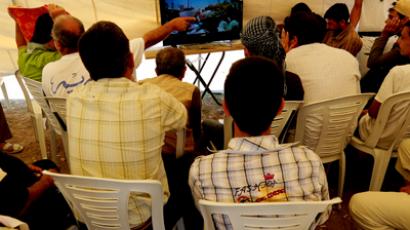Iran threatens to ‘strike out’ at any intervention in Syria
President Bashar al-Assad’s regime has friends in the region poised “to strike out” in the event of an intervention into Syria, says a commander of Iran's Revolutionary Guards. The warning was particularly sent to “hated” Arab countries.
“None of Syria's friends or the great front of resistance has yet entered the scene, and in the event that this happens, decisive blows will be struck at the enemy, especially the hated Arab rulers,” Gen. Masoud Jazayeri, a spokesman of the country's Joint Chiefs of Staff, told Fars news agency. No country in particular was mentioned. Iran remains a key ally of official Damascus, while leaders of such Gulf countries as Saudi Arabia, Jordan or Qatar openly support Syrian rebels. The hawkish rhetoric heard from Iran comes on top of the exchange over Syria’s chemical and biological arsenal, which the Arab country pledged Monday not to use against its own population, but only to combat “foreign aggressors.”This was the first time Syria’s arsenals became an official reality, since the nation is one of just six non-signatories to the Chemical Weapons Convention of 1992. Syria’s purported stockpiles of nerve agents, including mustard gas, as well as Scud missiles capable of delivery, are secure according to its Foreign Ministry. Media reports say the weapons are being moved away from sites of severe clashes between pro-regime and opposition forces.A torrent of warnings flooded Damascus following the statements, as officials from the EU and UN voiced their concerns over the possible use of the chemical arsenal. On Tuesday, Russia said it hoped Syria would abide by a Geneva protocol ratified by the Arab country in 1968. The document bans the use, production or stockpiling of chemical weapons. Russia’s Foreign Ministry said it "presumes that the Syrian authorities will continue to rigorously abide by its assumed international obligations."US President Barack Obama and the Pentagon immediately warned Damascus against the “tragic mistake” of deploying the weapons as such with Obama impressing on Assad’s regime that “the world is watching.”At the same time, Israel has been hinting at an intervention to secure the weapons if Assad’s regime collapses. Israel’s Foreign Ministry admits “the entire non-conventional weapons system is under the full control of the [Syrian] regime.” But this knowledge apparently did not dissolve the image of Hezbollah laying its hands on the arsenal. To complete this exchange, Iran’s Jazayeri also dismissed Tuesday the ability of “enemies” to overthrow the Syrian government. “The country's people and its friends will not allow such a move to take place,” he said.Still, many recognize the pattern of a psychological war. Paul Lashmar, an investigative journalist and academic at London’s Brunel University, says the accusation may be targeting one goal: to create an image of dangerous Syria, which cannot exercise control over itself.“Chemical and biological weapons are no good against rebel units that are fighting in a house-to-house combat. These are weapons you use nation against nation in a full scale battle. The fact that Americans and other countries are getting so concerned is to put the emphasis on Syria as a rogue nation. What is going on is to emphasize that this is a country with chemical and biological weapons that appears to be out of control,” Lashmar told RT.Meanwhile, as the UN estimates the 17-month uprising in Syria has taken over 15,000 lives, the EU tightens an arms embargo on Syria. Now the EU countries are required to search planes and ships if they have "reasonable grounds" to suspect they are carrying arms, dual-use goods or equipment used for “repression” to Syria. Blacklists, already containing 49 organizations and 129 people, were also expanded to 26 people, mostly military officials. Starting Monday they are banned from entering the EU and their assets have been frozen.



